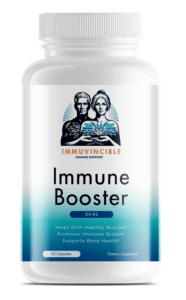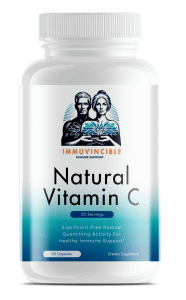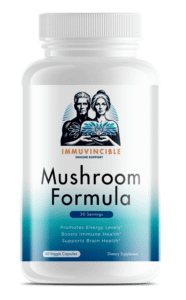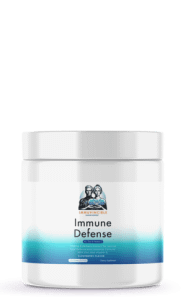Office workers face unique challenges when it comes to maintaining adequate levels of vitamin D. With long hours indoors,...

What You Can Do to Support Your Immune System Naturally
Supporting the immune system requires a holistic approach that includes a healthy diet, regular physical activity, adequate sleep, stress management, and preventive health measures. By adopting these practices, individuals can effectively enhance their immune function and overall well-being. Here are some key and proven factors that contribute to a strong and healthy immune system. While reading, you’ll find some references of renowned institutions I found for you.
NUTRITION
A Balanced Diet: Eat healthy, minimally processed foods as natural as possible, and avoid sugar, which is an enemy to your immune system. Supplements can greatly assist your immune system. Below is a list of these, and I also cover the foods that naturally contain these vitamins. I want to stress that a balanced diet is important, and the foods listed below are not the only foods to eat; variety is part of a balanced diet.
“Problems occur when you consume too much added sugar — that is, sugar that food manufacturers add to products to increase flavor or extend shelf life. In the American diet, the top sources are soft drinks, fruit drinks, flavored yogurts, cereals, cookies, cakes, candy, and most processed foods. But added sugar is also present in items that you may not think of as sweetened, like soups, bread, cured meats, and ketchup.”
Source: Harvard Medical School
VITAMINS
Vitamin A
Vitamin A is a crucial micronutrient for maintaining a healthy immune system. It supports the body’s defense against infections by enhancing the function of white blood cells, which are essential for fighting off pathogens. Vitamin A also plays a key role in maintaining the integrity of skin and mucous membranes, which serve as the body’s first line of defense against harmful bacteria and viruses. Additionally, it helps regulate the production of cytokines, which are proteins involved in immune responses, ensuring that the immune system responds effectively to threats.
Here is a list of foods rich in vitamin A, either in the form of preformed vitamin A (retinol) found in animal products or provitamin A (carotenoids) found in plant-based foods: beef liver, cod liver oil, carrots, sweet potatoes, spinach, kale, pumpkin, red bell peppers, butternut squash, mangoes, apricots, cantaloupe, dark leafy greens such as collard greens, broccoli, turnip greens, eggs, papaya, tomatoes, and salmon.
“Preformed vitamin A is found in fish, organ meats (such as liver), dairy products, and eggs. Provitamin A carotenoids are turned into vitamin A by your body. They are found in fruits, vegetables, and other plant-based products. The most common provitamin A carotenoid in foods and dietary supplements is beta-carotene.”
Source: National Institutes of Health
Vitamin B
Vitamin B is essential for supporting various functions of the immune system, primarily through its role in energy production, cell metabolism, and the formation of immune cells. The B vitamins play unique roles in strengthening immunity:
B1 (Thiamine) and B2 (Riboflavin): Help maintain cellular energy, which ensures that immune cells function efficiently.
B6 (Pyridoxine): Aids in the production of white blood cells and T-cells, which are critical in the immune response.
B9 (Folate): Supports the formation of new cells, including immune cells, and aids in the repair of damaged DNA in immune cells.
B12 (Cobalamin): Works alongside folate to ensure proper DNA synthesis and red blood cell production, contributing to a robust immune system.
A deficiency in B vitamins can weaken immune responses, making the body more susceptible to infections. They are crucial for producing antibodies and enhancing the function of both the innate and adaptive immune systems. Here is a list of foods that are rich in various B vitamins: eggs, salmon, chicken, turkey, beef, pork, lentils, chickpeas, black beans, almonds, avocados, spinach, kale, asparagus, brown rice, oats, sunflower seeds, bananas, Greek yogurt, and mushrooms.
“The 2 main causes of vitamin B-12 deficiency are inadequate dietary intake and, in the elderly, malabsorption of the vitamin from food. Contrary to popular belief, not only strict vegetarians (vegans) are at high risk of vitamin B-12 deficiency, and there is strong evidence that status reflects usual intake across a wide range.”
Source: The American Journal of Clinical Nutrition
Vitamin C
Vitamin C, also known as ascorbic acid, is a powerful antioxidant that plays a crucial role in supporting the immune system. It enhances the function of immune cells, which help the body fight infections. Vitamin C also stimulates the production of white blood cells, improves skin barriers against pathogens, and promotes the healing of wounds by helping form collagen, a key protein in skin tissue.
Additionally, its antioxidant properties help neutralize harmful free radicals, reducing inflammation and protecting the body from oxidative stress, which can weaken the immune system. A deficiency in vitamin C can lead to a weakened immune response, making the body more vulnerable to infections.
It’s important to get vitamin C from natural food sources, not just from ascorbic acid supplements. Whole foods rich in vitamin C, like fruits and vegetables, offer a more complete nutritional package, including fiber, antioxidants, and other beneficial compounds that enhance the absorption and effectiveness of vitamin C. While ascorbic acid supplements can be useful, they don’t provide the same benefits found in natural sources. Therefore, choosing supplements derived from food concentrates—like the supplements of Immunvincible—and consuming a variety of vitamin C-rich foods ensures better overall nutrition and immune support.
Some foods that are rich in vitamin C are: oranges, kiwi, strawberries, papaya, guava, red bell peppers, broccoli, Brussels sprouts, kale, spinach, pineapple, grapefruit, cantaloupe, mango, tomatoes, lemons, limes, cauliflower, acerola cherries, and blueberries.
“Surprisingly, a cup of broccoli contains as much vitamin C as an orange. Broccoli is a good source of other vitamins and minerals, such as: Calcium, Iron, Phosphorous, Potassium, Zinc, Thiamin, Riboflavin, Niacin, Folate.”
Source: WebMD
Vitamin D
Our bodies need vitamin D3 because it plays a critical role in enhancing the immune system by supporting both innate and adaptive immune responses. Vitamin D comes in two main forms: D2, which is found in plant-based sources, and D3, which is found in animal products and is more effectively used by the body. D3 is typically more potent and better at raising blood levels of vitamin D than D2.
Vitamin D3 helps modulate the activity of immune cells, which is essential for identifying and eliminating pathogens. Vitamin D3 also reduces the risk of autoimmune diseases by promoting immune tolerance and reducing excessive inflammatory responses. Adequate levels of vitamin D3 are linked to lower susceptibility to infections, including respiratory illnesses.
A deficiency in vitamin D3 can weaken the immune response, making the body more prone to infections and inflammation.
Another important factor when taking vitamin D3 is to take vitamin K2 with it. Taking vitamin K2 with vitamin D is important because they work synergistically to support bone and cardiovascular health. Vitamin D helps the body absorb calcium, but without vitamin K2, that calcium might not be directed to the right places, such as bones and teeth. Vitamin K2 activates proteins that help guide calcium into bones and out of soft tissues, such as arteries. This combination helps ensure that calcium strengthens bones while reducing the risk of arterial calcification, which can lead to cardiovascular problems.
Last but not least, here is a list of foods that are high in vitamin D3: salmon, mackerel, cod liver oil, tuna, sardines, egg yolks, herring, swordfish, trout, plant-based milks (almond, soy, oat), beef liver, caviar, and shrimp.
“Your immune system is made up of organs and cells meant to protect your body from bacteria, parasites, viruses and cancer cells. An autoimmune disease is the result of the immune system accidentally attacking your body instead of protecting it.”
Source: Cleveland Clinic
Vitamin E
Vitamin E is a powerful antioxidant that plays a crucial role in supporting the immune system. It helps protect cells from oxidative stress by neutralizing free radicals, which can damage immune cells and weaken the body’s defenses. Vitamin E also enhances the function of T-cells, a type of white blood cell essential for fighting off infections. By supporting the health of the immune cells and improving their response to pathogens, vitamin E helps maintain a strong and efficient immune system.
Here are some foods rich in vitamin E: sunflower seeds, almonds, hazelnuts, spinach, avocados, peanuts, broccoli, kiwi, mangoes, butternut squash, Swiss chard, pine nuts, olive oil, wheat germ oil, red bell peppers, trout, shrimp, kale, papaya, and pumpkin seeds. Including these foods in your diet ensures a good intake of vitamin E, supporting overall immune health and protection against oxidative damage!
“Your body uses vitamin E for multiple purposes, including protecting you from oxidative stress and supporting your immune system. You can get vitamin E from certain foods and dietary supplements.”
Source: Healthline – Jillian Kubala, Master of Science (MS), Registered Dietician (RD)
MINERALS
Minerals are essential for maintaining a healthy and responsive immune system. They play vital roles in various immune functions, such as aiding the production of immune cells, supporting antioxidant defense systems, and regulating inflammatory responses. For example, zinc helps activate immune cells, iron is critical for oxygen transport and energy production in cells, and selenium boosts antioxidant enzymes that protect immune cells from damage. A deficiency in key minerals can impair the immune response and increase susceptibility to infections.
It’s also important to understand how minerals and vitamins work together synergistically in the body to support various physiological processes. Minerals often act as cofactors, meaning they help vitamins function. For example, magnesium helps activate vitamin D, allowing it to regulate calcium absorption for bone health, while zinc assists in vitamin A metabolism, which is crucial for vision and immune function. Vitamins, in turn, can enhance the absorption and utilization of minerals. For instance, vitamin C improves iron absorption from plant-based foods. Therefore, the right balance of vitamins and minerals ensures optimal health and effective immune responses. It’s not enough to just take vitamins or just take minerals—both are important!
Here is a list of mineral-rich foods: spinach, kale, almonds, pumpkin seeds, sunflower seeds, lentils, quinoa, brown rice, chickpeas, salmon, sardines, oysters, shellfish, beef liver, eggs, dark chocolate, avocados, bananas, broccoli, and mushrooms.
PROTEINS
Proteins are like tiny building blocks that help our bodies work properly. They are made of smaller pieces called amino acids, and they help us grow, stay strong, and do important jobs like fixing our muscles or fighting off germs. You can think of them as workers in a factory, always busy making sure everything in your body runs smoothly. We get proteins from foods like meat, eggs, and beans.
“Amino acids are molecules that combine to form proteins. Amino acids and proteins are the building blocks of life. When proteins are digested or broken down, amino acids are the result. The human body then uses amino acids to make proteins to help the body.”
Source: MedlinePlus.gov
Probiotics and Prebiotics
Found in yogurt, kefir, sauerkraut, and other fermented foods, as well as in fruits, vegetables, and whole grains, they support gut health, which is very closely linked to immune function.
LIFESTYLE FACTORS
Regular Exercise
Moderate, regular physical activity can boost immune function and reduce inflammation. It promotes good circulation, which helps immune cells move more effectively throughout the body.
Adequate Sleep
Aim for 7-9 hours of quality sleep per night. Sleep is essential for the body’s regeneration and repair, as well as for the optimal functioning of the immune system. One cannot eat well and take supplements to replace sleeping enough. I have personally tried that, and our body really does need proper sleep so it can function properly, repair itself, and perform better during the day. When it comes to the immune system, not sleeping enough drastically lowers its efficiency. And ladies, it also speeds up the aging process, as the body cannot do all its repair and cleaning, which it does during the night!
Stress Management
Chronic stress can suppress the immune system, so if you have too much stress, do something about it. Techniques such as deep breathing exercises and taking walks in nature can help reduce stress. But also, reviewing your life patterns and improving these would be wise if you notice stress is an issue in your life. Maintaining strong social connections and a positive outlook can support overall health, reduce stress, and benefit the immune system. If something is bothering you, don’t hold it in—talk about it and deal with it!
Hydration
Drinking plenty of water supports overall health and ensures that the body’s systems, including the immune system, function optimally. This is a very important point; not drinking enough water is such a basic need for your body that it can undermine the other good actions you are taking to be healthy. Water is how your body gets rid of toxins, for example. I personally drink filtered water, Kangen water and I import Kaqun water.
Avoiding Harmful Behaviors
No Smoking: Smoking impairs lung function and weakens the immune system, making the body more susceptible to infections. Limit alcohol consumption: Excessive alcohol intake can weaken the immune system. Moderation is key.
Stay healthy! Get our 4 Pillars of Immunity™!
News
Related Posts
5 Powerful Reasons Kimchi Is a Superfood for Your Immune System
When it comes to boosting your immune system naturally, few foods pack as much power as kimchi. This traditional Korean dish,...
How Proper Sleep Boosts Your Immune System: Tips for Better Immunity
Getting a good night’s sleep isn’t just important for feeling refreshed—it’s also crucial for your immune system. Quality sleep...
Eat Smart, Stay Healthy: Immune-Boosting Nutrition Tips
Maintaining a strong and resilient immune system becomes increasingly important as we age. For adults over 30, it's not just...








